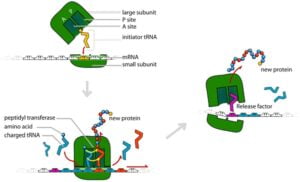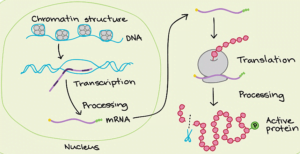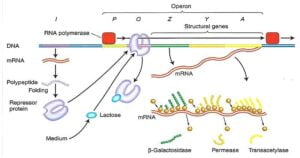Genetics :-
Genetics is the branch of biology concerned with the study of genes, genetic variation and heredity in organisms.
- Gregor Johann Mendel, a scientist and Austrian friar discovered genetics in the late 19th century therefore known as father of genetics.
Heredity :-
It is the passing on of traits from parents to their offspring, either through asexual reproduction or sexual reproduction.
The traits or characters are called hereditary characters.
Gene :-
A gene is the basic physical and functional unit of heredity.
They contain the information that is required to express a particular trait in an organism.
Genes are made up of DNA or RNA. Some genes act as instructions to make molecules called proteins, however many genes do not code for proteins.
- The human genome project estimated that humans have between 20,000 to 25,000 genes.
Reasons for Mendel’s success :-
- selection of pea plants :-
The gene principle on the basis of his work in garden pea involving 7 pairs of contrasting characters.
Contrasting characters in pea plants –
(a) height of stems :- Tall and Dwarf.
( b ) position of flowers :- Axillary and Terminal.
( c ) colour of pods :- Green and Yellow.
( d ) shape or form of pods :- Inflated and constricted.
( e ) shape or form of seeds : – Round and Wrinkled.
( f ) colour of seeds :- Yellow and Green.
( g ) colour of flowers :- violet and White.

2. Easy to experiment :-
Life cycle of pea plant is few months and also its shorter height due to which the experiment was very easy.
3. Working method :- He select only one trait at one time for the experiment and he also checked the cross pollination from undesirable pollen grains.





